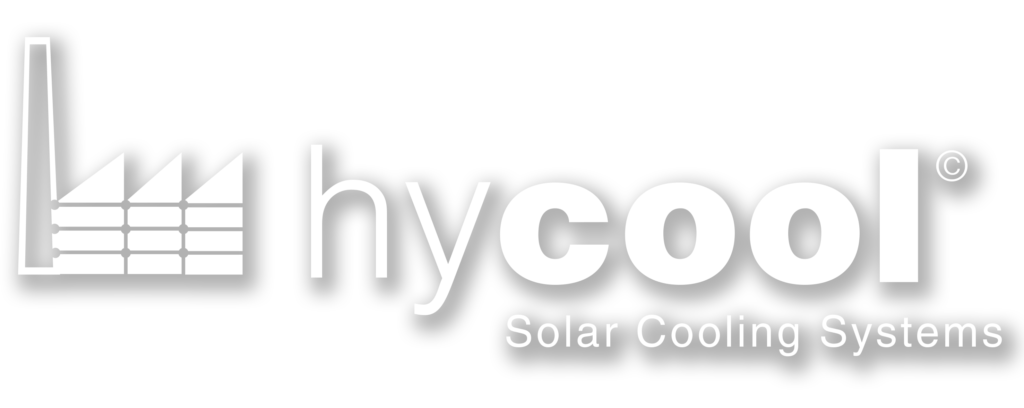Per IRENA’s estimates, SHIP has the technical potential to cover 10% of industrial energy demand by 2030.
Europe is in the middle of a game-changing decarbonisation process. European regulations are changing quickly and constantly, introducing new obligations on energy efficiency, use of renewable energy, energy audits, circular economy and much more.
From the cost perspective, carbon taxes are being introduced in many European countries and will influence the cost of energy in the future. Future fossil fuel prices are subject to great uncertainty, due to resources scarcity, changing energy markets with increased use of renewable energy sources, and geopolitical issues.
Solar thermal heating and refrigeration is a modern, efficient and technologically appealing way to decarbonise industrial production. It is completely carbon-free, affordable, well subsidised in several Member States and provides heating and cooling at constant energy prices over at least two decades.
Per IRENA’s estimates, SHIP has the technical potential to cover 10% of industrial energy demand by 2030.
Some facts on SHIP
Some facts on SHIP
- Temperature: heat at a temperature of up to 300°C and negative cold at a temperature down to -40°C.
- Sectors: Agro-food (brewery, mining, crop drying, etc.), chemistry, textile, paper, metallurgy, rubber & plastic, machinery and electrical equipment, wood.
- Industries processes: drying and dehydration, preheating (input or raw material), pasteurisation and sterilisation, washing and cleaning, chemical reactions, surface treatment, space heating, supply of hot water or steam.
- Geographical coverage: At least 891 plants worldwide (2020; SolarPayback). Suitable for regions with higher solar irradiation.
- Investment required: for large systems in Europe, the investment costs can go from 350 to 1040 USD/kWth (315 to 936 EUR/kWth). In terms of energy costs, it can range from 20 to 70 USD/ MWhth (18 to 63 EUR/MWhth) in Southern United States and between 40 and 150 USD/MWhth (36 and 135 EUR/MWhth) in Europe (2015; IEA)
- Benefits: Depending on the location, a 1.4 MWth (2000 m²) system could generate the equivalent of 1.1 MWhth /year, a saving of around 175 Mt of CO2 (UNEP; 2015)
Learn more on SHIP
SHIP database
Database
The Solar Heat for Industrial Processes – SHIP database has been created in the framework of the IEA Task 49/IV. This online database contains a worldwide overview on existing solar thermal plants which provide thermal energy for production processes for different industry sectors.
Each plant description contains a number of informations about e.g. the size of the collector field, collector technology or integration point in the production process. An initial survey has been developed and sent out to different solar companies by AEE INTEC. The returned data has been collected, structured and integrated into the database by them.
100% RE Industries
Horizontal Working Goup
The 100% RE Industries Horizontal Working Group (HWG) has the objective of defining a comprehensive roadmap for the European industry to achieve the target of 100% RE heat and cold supply in order to foster the European industrial leadership.
It is coordinated by RHC-ETIP, the European Technology and Innovation Platform on Renewable Heating and Cooling. RHC-ETIP is made of technology panels, which represent the supply side (manufacturing and selling of renewable heating and cooling technologies), and of Horizontal Working Groups (HWG) who represent the demand side (buildings, cities, districts and industries).
Follow this link to read more about their goals, needs and roadmap.
Libraries & Publications
SHC annual statistics report on the impact of solar heating and cooling technologies on climate protection.
A series of documents, tutorials and infographics from this 3 year project. In English, Spanish and Portuguese
A 2015 IRENA/IEA-ETSAP Technology Brief provides technical background, analyses the potential and barriers for market growth, and offers insights for policy makers on this key renewable energy technology.
Short description: A wide range of documents supporting a better understanding of the sector. Market Statistics, Guides, Factsheets, Reports…
Tools
Download royalty-free images of SHIP systems around the world.
Find the world´s largest SHIP suppliers on an ineractive map.
Evaluate if HyCool technology is suitable for a given industrial cooling process.
Performance calculator tool to predict the refrigeration capacity and energy efficiency ratio (EER) of the cascade HyCool chiller for a given industrial cooling process.
EU Projects
SHIP2FAIR (Solar Heat for Industrial Process towards Food and Agro Industries commitment in Renewables) aims to foster the integration of solar heat in industrial processes of the agro–food industry.
With this purpose, SHIP2FAIR will develop and demonstrate a set of tools and methods for the development of industrial solar heat projects during their whole life-cycle.
The INSHIP project (Integrating National Research Agendas on Solar Heat for Industrial Processes) aims at the definition of an ECRIA (European Common Research and Innovation Agenda) that engages major European research institutes with recognized activities on Solar Heat for Industrial Purposes (SHIP), into an integrated structure. It also advances the state of R&D on low, medium and high temperature application for solar heat in industry.
RE4Industry project aims at determining the most suitable and economically- and technologically-feasible renewable solutions for energy-intensive industries.
The main objective of SunHorizon is to demonstrate up to TRL 7 innovative and reliable Heat Pump solutions (thermal compression, adsorption, reversible) that acting properly coupled and managed with advanced solar panels (PV, Hybrid, thermal) can provide heating and cooling to residential and tertiary building with lower emissions, energy bills and fossil fuel dependency.
A cloud-based functional monitoring platform will be realised in the project to be the “performance data mine” for the development of Data Driven/KPI oriented optimized algorithms and tools for predictive maintenance, optimize the management towards maximisation of solar exploitation and give to the manufacturer inputs for new installation design.
IN POWER aims at developing and integrating new innovative material solutions into concentrated solar technology to increase the efficiency while simultaneously decreasing the energy production cost.
S-PARCS presents a sound concept for reducing energy costs and energy consumption in industrial parks, while, at the same time, increasing renewable on-site energy production.
The pre-assessment of the seven Lighthouse Parks from Spain, Portugal, Italy, and Austria, which participate in the study, has shown a high potential for joint energy actions, many of which are transferrable to the community of S-PARCS Followers in the UK, Sweden, Turkey, Russia, Italy, Portugal, Austria and Norway.
FRIENDSHIP (Forthcoming Research and Industry for European and National Development of SHIP) plans to bring together research centres, industrial designers, technologies & heat suppliers into the same consortium in order to unite skills towards the boost and control of the heat supply temperature according to processes needs.
It will evaluate to what extent high share of solar heat heating and cooling will allow to reduce the dependence of industrial processes on carbon energies and associated polluting emissions, and to quantify economic gains related to the use of solar energy in a context of a changing fossil fuel market and changing climatic constraints.
The objective of the three-year Solar Payback project: Promoting the use of Solar Heat for Industrial Processes (SHIP) across four partner countries – South Africa, India, Mexico and Brazil.
As part of the German International Climate Initiative (IKI), it is raising awareness of the technical and economic potential of SHIP technologies by clear and transparent information on the costs and benefits of SHIP applications and by helping to build selected reference systems. Solar Payback also cooperates with financial institutions to develop models which will assist stakeholders and investors in securing access to financing.
The main objective of ASTEP project is to successfully demonstrate the viability of applying solar thermal energy to partially cover heating, and heating and cooling demands on two different relevant industrial demo sites located on two different climate regions, and to further develop the implementation of solar thermal energy in industrial processes up to 400 ºC.
The objective of the project is that of offering the European researchers an effective and convenient access to the best research infrastructures in order to conduct research for the advancement of knowledge and technology in the field of concentrating solar thermal (CST) energy, as well as improving the services that these infrastructures offer to these researchers, through a wide range of joint research activities.
The scope of the Task is on solar thermal technologies for converting solar radiation into heat and further the intelligent integration of the produced heat into industrial processes (i.e. the subject that is covered by the Task starts with the solar radiation reaching the collector and ends with the hot air, oil, water, or steam being integrated into the application).
Other Platforms
One of the first programmes of the International Energy Agency to promote the use of all aspects of solar thermal energy.
With around 40 members in Europe, hey advocate for better regulation and encourage EU policy makers to shape a fair context for heating and cooling solutions.

